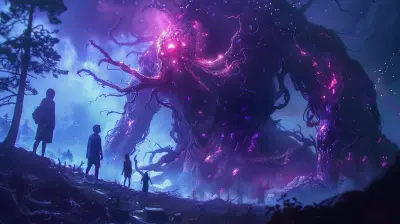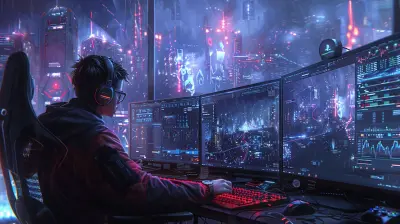Adapting Classic Mythology for Unique Game Worlds
6 July 2025
From ancient gods to epic quests, myths have always fired up our imagination. So, it makes perfect sense that game developers—those modern worldbuilders—are turning to mythology when crafting fantastical game universes. But here’s the cool part: they’re not just retelling old stories. Nope. They’re remixing, twisting, and reimagining mythology to build new worlds that feel both familiar and totally original.
So, how exactly does that work? Let’s dive into the wild, wonderful process of adapting classic mythology for unique game worlds—and why it makes for some of the most compelling gaming experiences out there.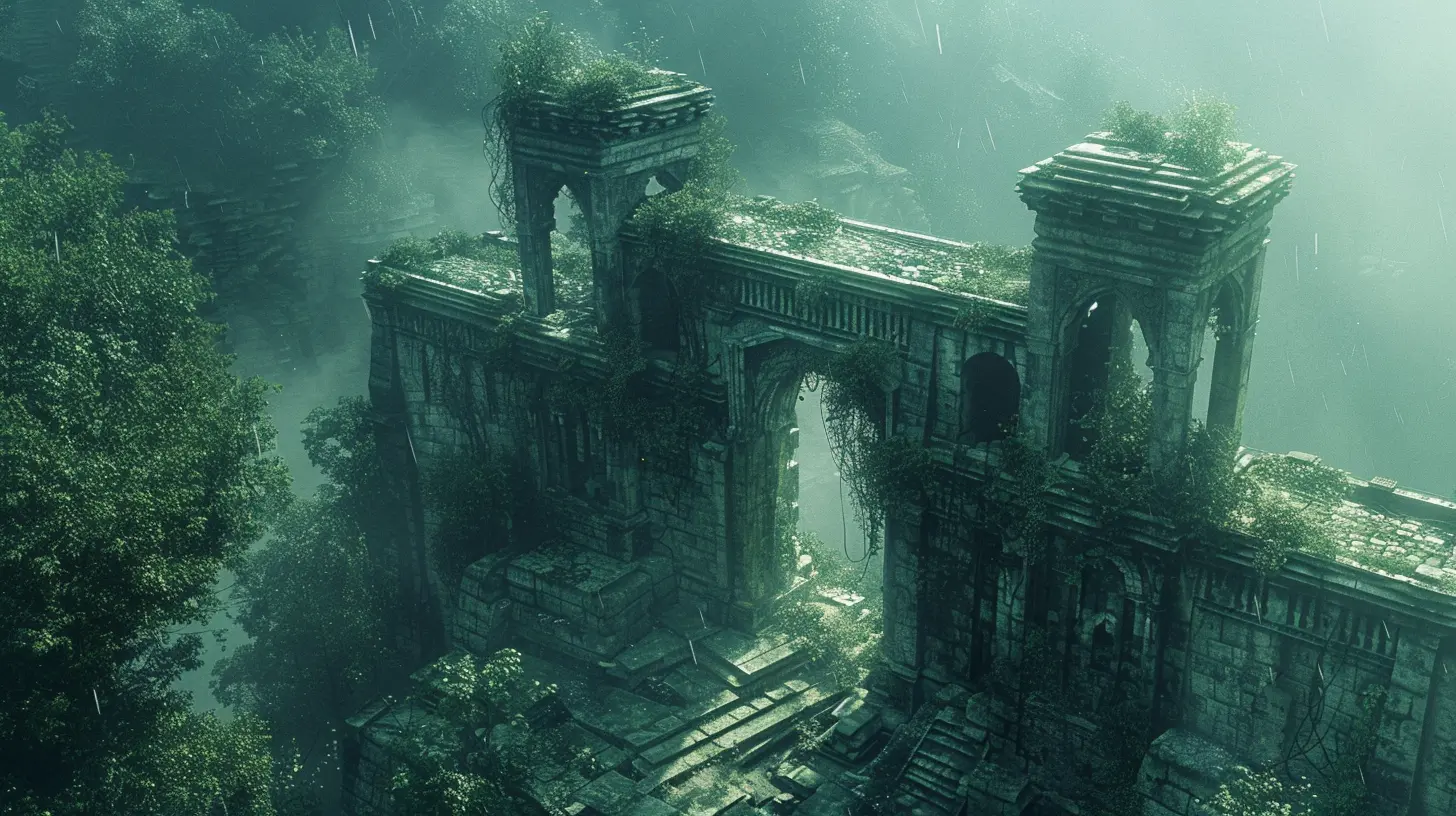
Why Mythology Makes a Killer Foundation for Games
First off, let’s talk about why mythology and gaming are such a perfect match. Mythology is basically storytelling on steroids—heroes, villains, monsters, love, betrayal, cosmic battles. It’s got all the juicy stuff we crave in games. Plus, myths are already built like quest lines. There’s a beginning, a journey, an end, and usually some god getting mad in-between.And the best part? Myths are already public domain. No need to license anything. Developers can take these age-old tales and mold them into interactive, immersive experiences.
Ever heard of a win-win?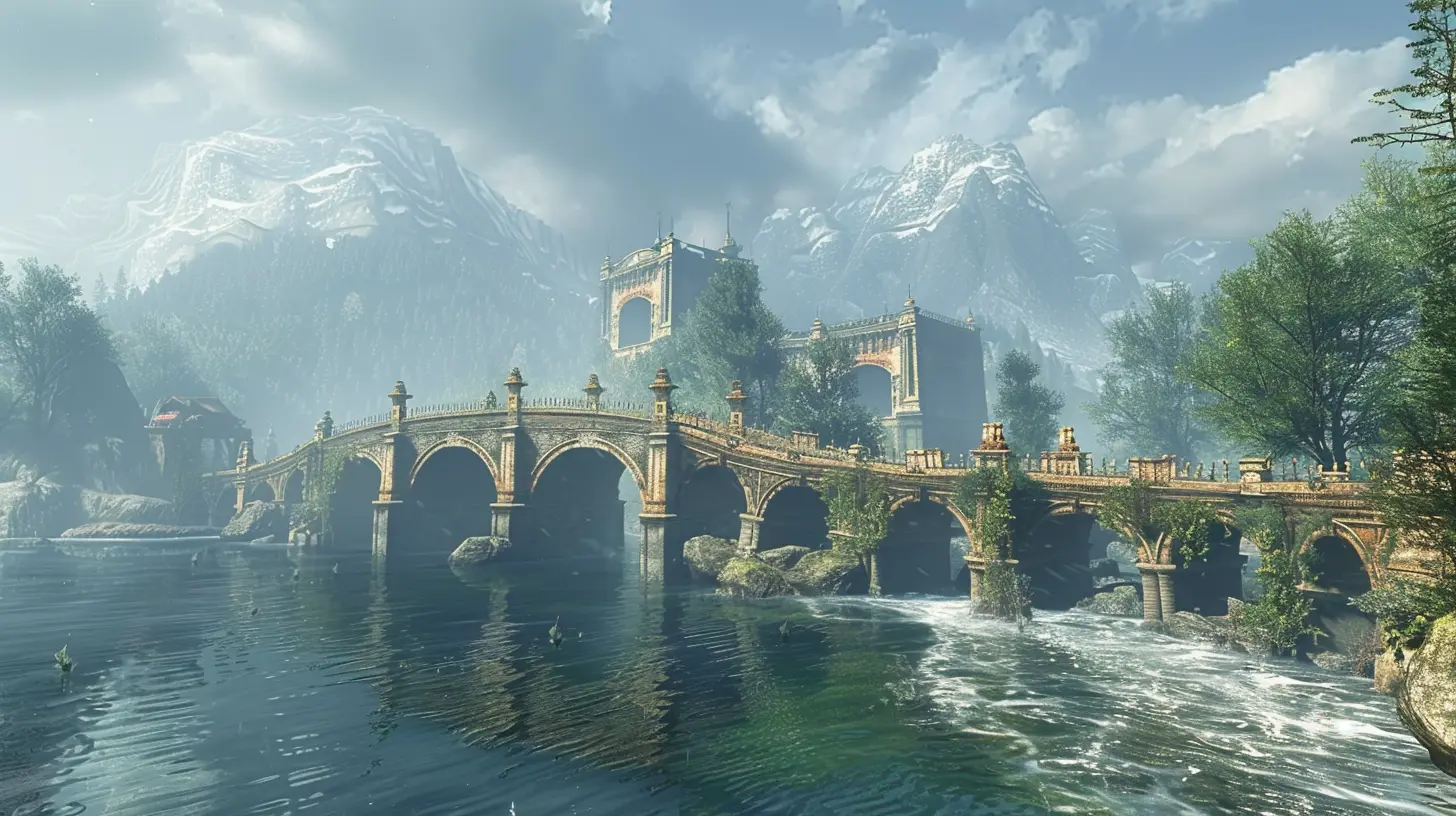
Going Beyond Greek: Tapping Into Global Myths
Okay, we all know about Zeus, Hades, and their dysfunctional family drama. But the world of mythology is so much bigger than Mount Olympus.Game creators are now pulling inspiration from:
- Norse mythology: Think Ragnarök, world serpents, and all the darkness you can handle. Looking at you, God of War (2018).
- Japanese folklore: Spirits, demons (yōkai), and ancient rituals. Nioh and Okami nailed this vibe.
- African myths: With rich oral storytelling traditions, these are starting to make a fresh impact in indie games.
- Slavic legends: Baba Yaga alone could fuel an entire horror RPG.
The cultural depth of global mythology means game worlds can be built with layers of symbolism, meaning, and atmosphere that hit on so many emotional levels.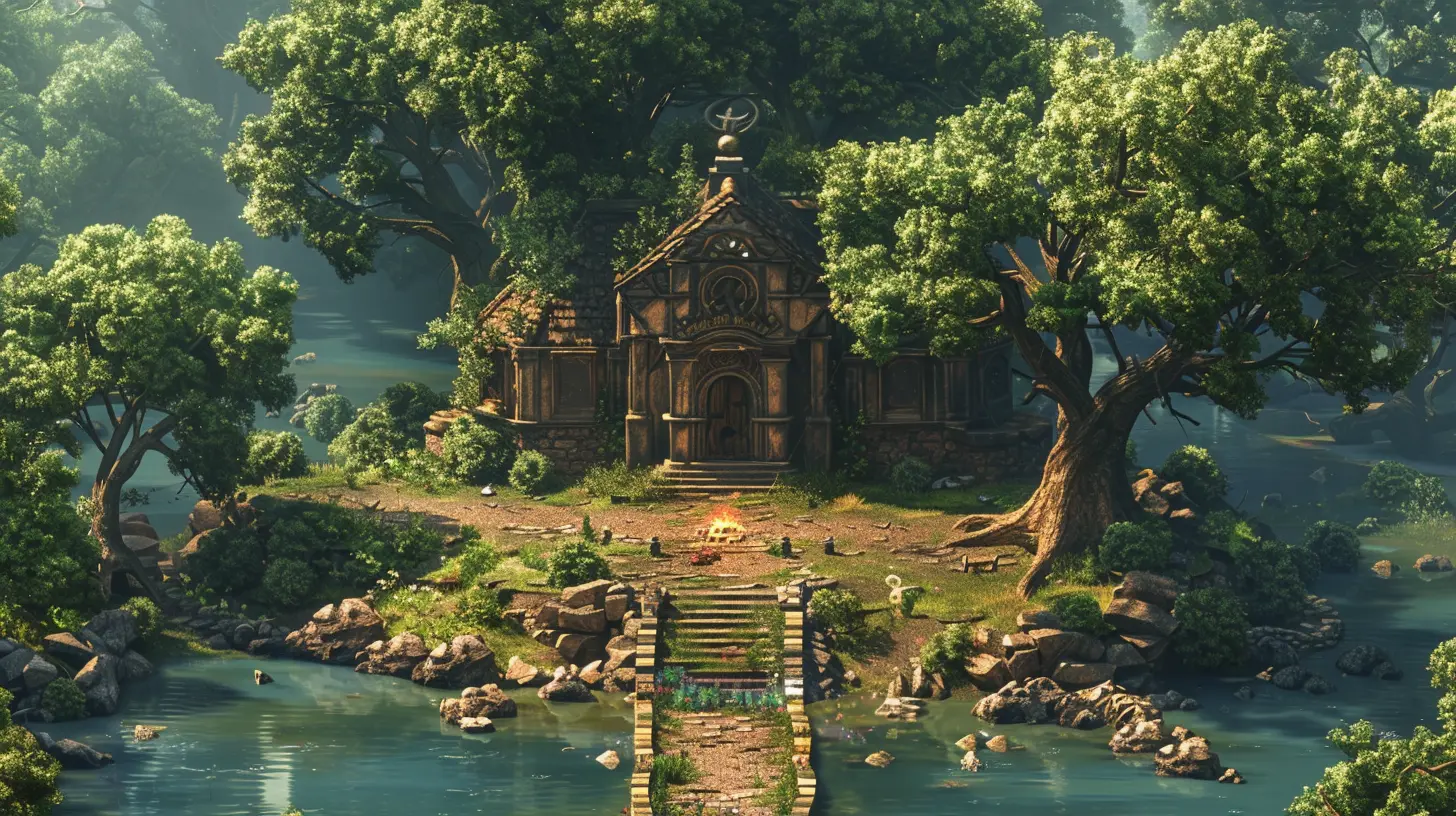
From Linear Stories to Interactive Lore
Myths are traditionally told in a linear fashion: beginning, conflict, resolution. But in games? We get to mess with that.Developers have found clever ways to scatter mythological breadcrumbs throughout the world—letting players piece together lore from relics, murals, ancient scrolls, and even NPC conversations.
Games like Dark Souls and Elden Ring master this technique. They’re not handing you the story on a silver platter—you have to dig for it. And that sense of discovery feels so much more rewarding than just watching a cutscene.
It’s like handing a player a puzzle made of old myths they already sort of know… but with missing pieces and a few unexpected twists.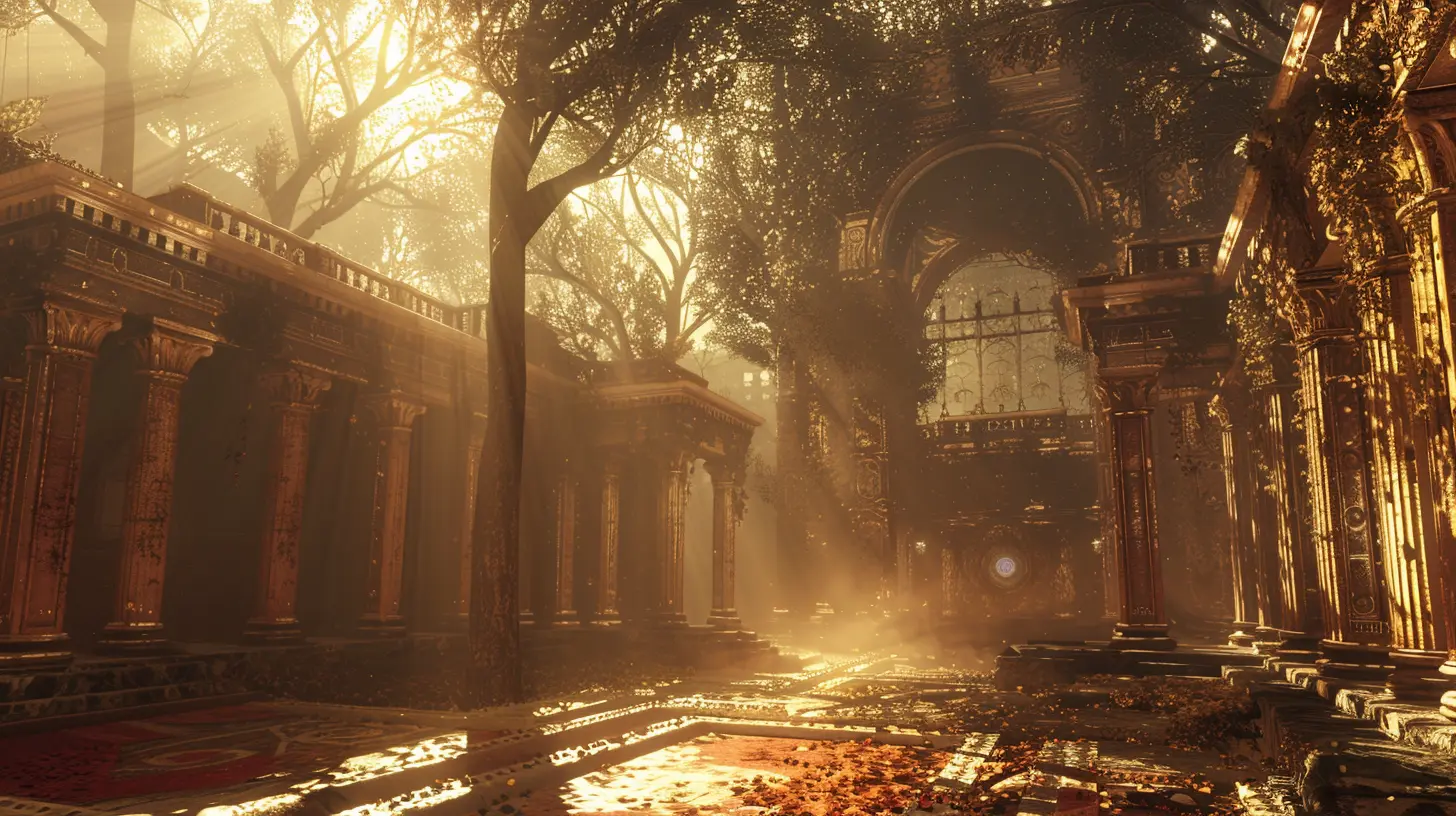
Twisting the Tale: Subverting Expectations
One of the coolest things about adapting classic mythology is flipping it on its head. Ever wonder what would happen if the villain of an old myth was actually the misunderstood hero?For instance, Hades (the game by Supergiant) doesn’t paint the god of the underworld as a mustache-twirling baddie. Instead, he's complex, moody, and surprisingly relatable. And you play as his rebellious son, Zagreus, who isn't even a big name in most mainstream myths.
This twist keeps things fresh and engaging for players. If you already know the myths, great—you’re in for some surprises. If you don’t, even better—you’re learning a twisted version that encourages deeper exploration.
Myth-Inspired Characters That Resonate
Characters are the heart of every game, and mythology gives devs instant access to archetypes that have stood the test of time. But here’s the trick: blending the old with the new.Let’s say you’ve got a warrior blessed by the gods. That’s a pretty standard trope. But what if she’s also dealing with trauma inherited from generations of divine conflict? What if her powers come at a psychological cost?
These reimagined characters bring ancient stories into the present, reflecting modern themes like identity, mental health, and rebellion against authority.
So, rather than just copying Hercules or Thor verbatim, developers are building characters who feel like echoes from mythology—but with modern sensibilities.
Worldbuilding Through Mythical Rules
One way mythology shapes game worlds is through the rules themselves. In many ancient stories, gods set the boundaries: “Don’t eat this fruit,” “Don’t look back,” “Don’t open that box.”Games adapt these rules into mechanics or moral dilemmas. Maybe your character can only defeat enemies during the night because that’s when the spirit realm is active. Or maybe you’re cursed by a god and must complete an impossible task to lift it.
These elements aren’t just flavor—they’re tied into gameplay, giving players a real sense of consequence and drama based on mythological systems.
Ethical Dilemmas and Moral Gray Zones
Myths are messy. Heroes make mistakes. Gods are petty. Bad guys sometimes have a point. That kind of moral ambiguity translates beautifully into games.When adapting mythology, devs often use these gray areas to challenge players. Should you help a demigod reclaim his throne, even if it means triggering a civil war among mortals? Do you trust a trickster god who might just be telling the truth—for once?
Games like The Witcher series thrive in these murky waters, often drawing loose inspiration from European myths and fairytales to build choices that don’t have “right” answers.
Procedurally Generated Myths? Yes, Please.
Here’s a fun thought: what if every player experienced their own myth?Some modern games use procedural generation to remix mythic elements and story beats into unique combinations. Imagine a game where you’re always the chosen one—but the prophecy, monsters, and divine help change every time you play.
This idea taps into the oral tradition of mythology. Back in the day, stories were passed from person to person, changing slightly each time. So, procedural storytelling? That’s actually super old-school.
Indie Devs: The New Mythmakers
While big budget games have the resources to go all out with cinematic mythologies, indie developers are doing something arguably even cooler. They’re diving deep into underrepresented myths and folk tales, often from their own cultures, and bringing those stories to life in strange, beautiful, and haunting ways.Think of games like Mulaka (inspired by the Tarahumara people of Mexico), or Never Alone (based on Alaskan Native stories). These games don’t just refer to mythology—they celebrate it, preserve it, and pass it on to a global audience in a fresh, playable format.
Challenges of Adapting Mythology Responsibly
Alright, let’s keep it real for a sec. Adapting mythology isn’t all fun and games. There’s a responsibility that comes with retelling sacred stories, especially those from cultures that have been historically marginalized or colonized.Cultural sensitivity is key. It's not just about sprinkling in exotic gods and monsters—it’s about understanding the meaning behind the myths, and representing them in a way that honors their origin, rather than exploiting them.
The most successful games often involve cultural consultants, deep research, and a genuine desire to tell authentic stories—not just to chase a cool aesthetic.
Because when done right, myth adaptation becomes more than just a game mechanic. It becomes an act of storytelling that connects generations.
The Endless Potential of Myth
Here’s the thing with mythology—it never really gets old. No matter how many times we retell these stories, there’s always a new angle, a different lens, a strange twist no one’s tried yet.In the world of gaming, where creativity is the name of the game (pun totally intended), myths serve as this massive sandbox full of characters, themes, creatures, and rules just waiting to be reshaped.
And as technology evolves—from photorealistic graphics to AI-driven narratives—we’re only just scratching the surface of how deep these myth-inspired game worlds can go.
Final Thoughts
Adapting classic mythology for unique game worlds isn’t about recycling the past. It’s about breathing new life into timeless tales and letting players live inside them. Whether it’s through epic boss battles with gods, lore-rich backstories, or subtle moral dilemmas wrapped in mythic symbolism, these games give us something special: the chance to rewrite the legends we thought we knew.And honestly? That’s pretty legendary.
all images in this post were generated using AI tools
Category:
World BuildingAuthor:

Audrey McGhee
Discussion
rate this article
2 comments
Korian Gates
Integrating classic mythology enriches game narratives, creating immersive worlds with timeless themes and characters.
October 3, 2025 at 5:08 PM

Audrey McGhee
Absolutely! Classic mythology adds depth and resonance to game narratives, offering timeless themes that enhance immersion and player engagement.
Hawk Jacobs
Embrace the myths! Blending classic tales with unique worlds sparks creativity—let's unleash our inner heroes on epic adventures!
July 14, 2025 at 4:08 AM

Audrey McGhee
Absolutely! Infusing classic myths into unique settings not only revitalizes the tales but also inspires fresh adventures and creativity. Let's embark on this epic journey together!

